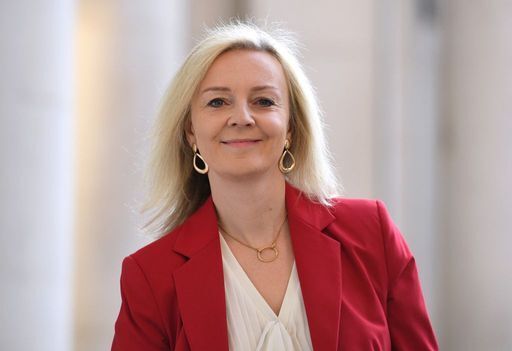Foreign Secretary Liz Truss will today launch a revamped British development finance institution that will invest billions in infrastructure and technology in low and middle income countries across Asia, Africa and the Caribbean.
The government says the new British International Investment (BII), will be a key part of its wider plans to mobilise up to £8bn a year of public and private sector investment in international projects by 2025. This will include BII partnering with capital markets and sovereign wealth funds to scale up financing and help the private sector move in.
The Foreign Secretary has agreed that BII will prioritise sustainable infrastructure investment to provide a clean, honest and reliable financing and avoid low and middle income countries being left with bad and unsustainable debt. It builds on the Prime Minister’s commitments at COP26 to help developing countries take advantage of clean technology and grow their economies sustainably, with the BII delivering billions in climate financing for projects like solar power, sustainable transport and disaster-resilient infrastructure over the next five years.
It is part of the UK’s network of liberty strategy that aims to deepen economic, security and development ties globally and bring more countries into the orbit of free-market economies while delivering jobs and growth in both the UK and developing world.


The Foreign Secretary will launch BII – formerly known as CDC – at the London Stock Exchange this morning, where she will open the market before a panel event with major businesses and investors.
The BII will work under a new chair – Diana Layfield – and a new strategy that will work alongside UK Export Finance (UKEF) and DIT, bringing in UK expertise. The government says the new system will play to the UK’s strengths as a world-leading financial powerhouse, including partnering with capital markets and Sovereign Wealth Funds.
It also aims to “Pivot towards Asia” by entering new markets in the Indo-Pacific, alongside the Caribbean.
The project also plans to create markets for digital infrastructure, technology and renewable energy – including exploring opportunities such as small modular nuclear reactors like those being developed in Derbyshire. BII says its work will benefit the UK by creating opportunities in areas like project management, construction and clean energy.
The investment will operate under a defined set of core principles including personal freedom, protection of property rights, and free markets, which is says will be high-standard, transparent and reliable.
Ms Truss has previously sharply criticised the “economic coercion” of many of Beijing’s trading practices throughout its global Belt and Road Initiative, and this new development wing could potentially aim to counter China’s controversial foreign aid operations.
BII will help deliver the UK’s Clean Green Initiative, Britain’s contribution to the G7 Build Back Better World initiative to achieve a step change in development finance. It will support our work to co-invest with allies and partners in honest, clean and reliable infrastructure in low and middle-income countries. The launch is part of a package of new tools and expertise to help countries build the pipeline for investment and scale up infrastructure investment. Further detail will be set out in due course.
Foreign, Commonwealth and Development Secretary, Liz Truss, said: “When freedom-loving democracies invest in infrastructure and supply technical expertise, it makes countries freer, wealthier and more secure.
“Too many countries are loading their balance sheets with unsustainable debt. Reliable and honest sources of finance are needed. Britain and our allies will provide that, with British International Investment a key delivery vehicle.
“This is a win-win for all. It benefits Britain by creating jobs and opportunities for our people. And it helps grow economies across Asia, Africa and the Caribbean while drawing them closer towards free-market democracies and building a network of liberty across the world.”
The Chair of the International Development Committee, which scrutinises UK aid spending on behalf of Parliament, Sarah Champion MP, said: “This is more than a name change and we will watch this carefully. To start with, the word ‘development’ has been taken out of the title. That’s a worrying sign.
“But beyond that I note that the Foreign Office says British International Investment (BII) will be ‘part of the UK’s network of liberty […] delivering jobs and growth in both the UK and the developing world’.
“My Committee certainly supports investments which create UK jobs. But the Number One priority of a development finance institution must be tackling poverty in lower income countries – that’s what development finance institutions are for. I want to see a clear commitment from BII to fight poverty. The poorest and most vulnerable must not be left behind.
“In a recent report on climate change by the International Development Committee, that I chair, we criticised the former CDC group for investing in the fossil fuel sector – a clear contradiction to the government’s promises to tackle climate change. I want to see a commitment to stop fossil fuel investments as well.
“The Foreign Secretary said BII will invest billions in infrastructure. But this is just one part of what developing countries need – where is the commitment to education, better nutrition and decent health services? Working hard in these areas is more important than a name-changing ceremony”.
Benedict Rogers, co-founder and deputy chairman of the Conservative Party’s human rights commission, said: “This is a very welcome initiative. It is vital to counter the growing coercive influence of the Chinese Communist Party regime around the world in practical ways and help the developing world reduce dependency on China.
“Such action is long overdue but better late than never. It needs to be accompanied by other measures to diversify our own supply chains, reduce our own strategic dependency, and sanction Chinese officials and entities responsible for very grave violations of human rights, but this is certainly a welcome start.”












